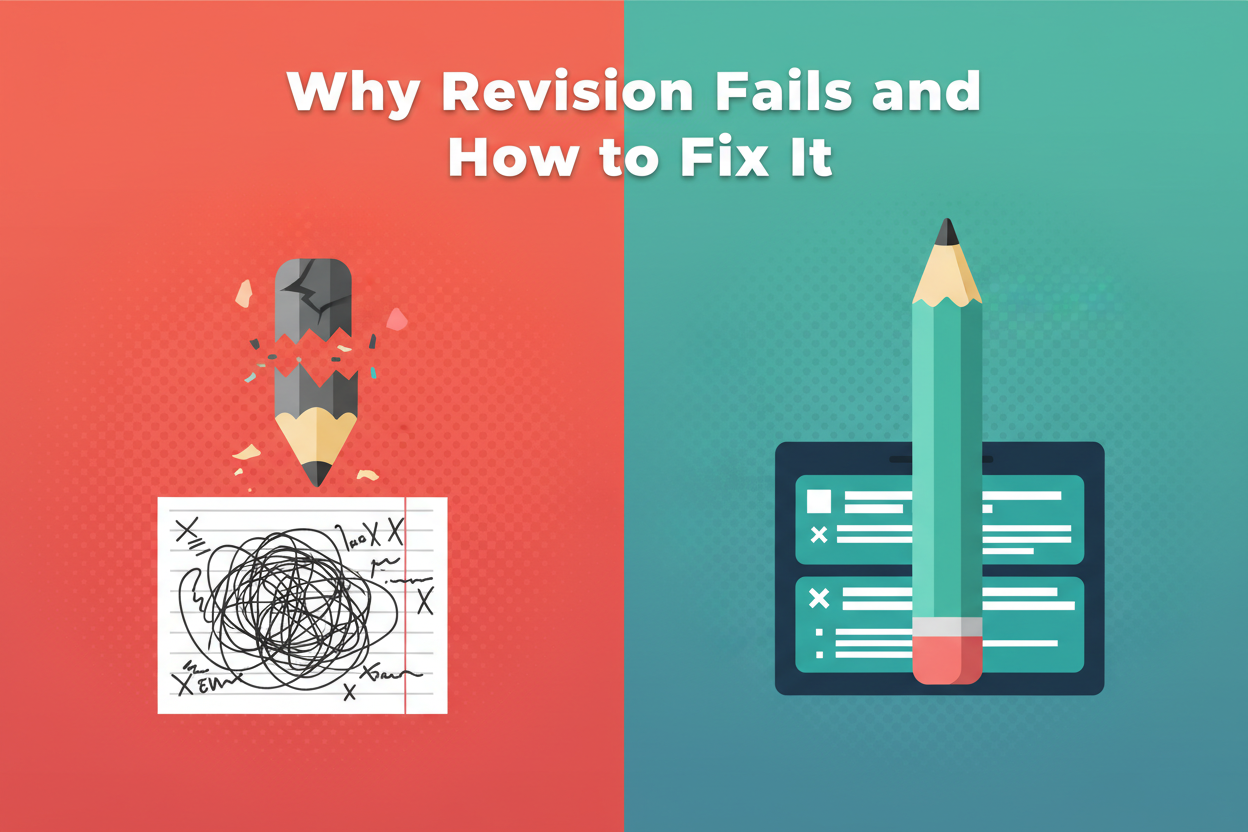Many students prepare for competitive exams with long hours of revision, yet they forget concepts during the real test. Understanding why revision fails is important for improving your study performance. This blog explains the main reasons revision does not work and simple ways to fix it.
Passive Reading Weakens Memory
Many students think revision means reading notes again and again. This creates a false sense of confidence. Passive reading does not build real recall.
Fix it:
Use active recall—write what you remember, teach yourself aloud, or use flashcards.
Why Revision Fails Without Spaced Practice
The human brain forgets most information within a day. Students who revise only before exams face major memory loss.
Fix it:
Use spaced repetition on Day 1, Day 2, Day 4, Day 7, Day 15, and Day 30.
Revising Everything Creates Confusion
Trying to revise entire books wastes time and reduces focus. Competitive exams reward smart revision, not heavy revision.
Fix it:
Follow the 80/20 rule. Focus on high-weightage topics and repeated questions.
Lack of Exam-Style Practice
Revision done in a relaxed way does not prepare you for real exam pressure. Accuracy and speed stay weak.
Fix it:
Solve mock tests with timers and without hints.
Why Revision Fails When Mistakes Are Ignored
Many students never review their errors. This leads to repeated mistakes in the exam.
Fix it:
Create a mistake notebook and review it every few days.
Long Study Hours Reduce Efficiency
Studying for too many hours reduces concentration. The brain needs short intervals to function well.
Fix it:
Use 45-minute focused study blocks with short breaks.
Notes-Only Revision Is Not Enough
Reading notes feels easy but does not build problem-solving skill. Exams test application, not just memory.
Fix it:
Solve previous year papers, topic tests, and mixed practice sets.
Digital Distractions Break Focus
Social media and notifications interrupt deep revision. Every distraction resets your concentration.
Fix it:
Keep your phone away or use Do Not Disturb mode while studying.
Weak Concepts Lead to Poor Revision
Memorising without understanding makes revision ineffective. Concept gaps show up instantly in tricky questions.
Fix it:
Strengthen your basic understanding before revising.
Random Revision Slows Progress
Students often revise based on mood instead of strategy. This causes forgotten topics and uneven preparation.
Fix it:
Use a simple plan: daily revision, weekly review, monthly recap, and mock tests.
Conclusion
Revision fails not because students lack intelligence, but because the method is not effective. When you understand why revision fails and use active recall, spaced repetition, question-based practice, reduced distractions, and consistent planning, your exam performance improves quickly.
A few smart changes can transform your revision results and boost your confidence.
Also Read: NEET Anxiety Tips: How to Stay Calm and Mentally Strong


